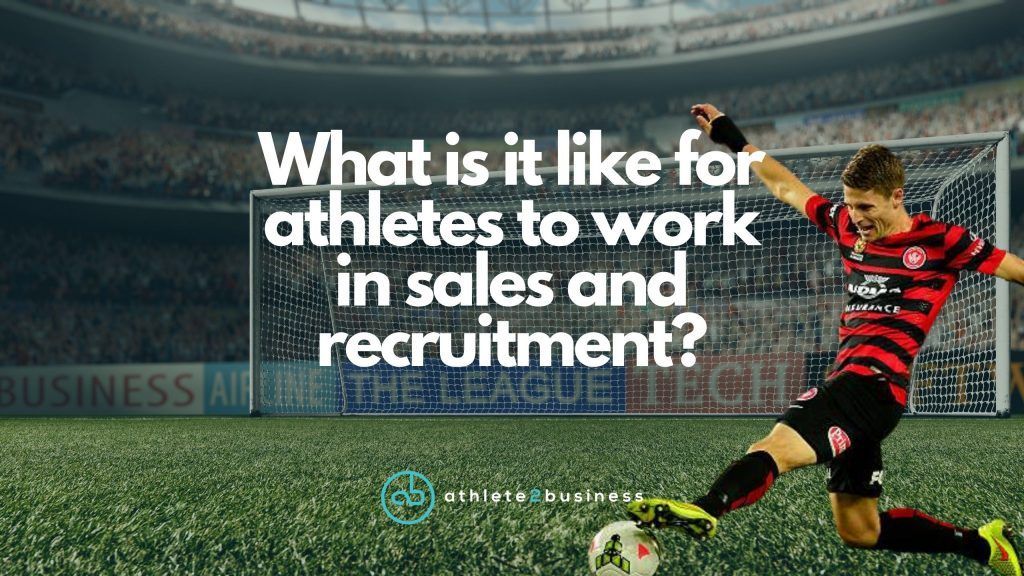From the field to the office: athletes working in sales and recruitment
From the field to the office: athletes working in sales and recruitment

Working in sales and recruitment can be a great career option for athletes who are looking for opportunities outside of sports. Many athletes have the skills and traits required to excel in these fields, it can be financially rewarding, and the industries have many direct correlations with sports.
In this article, we will explore what it’s like for athletes to work in sales and recruitment, why there is a stigma attached to the industries, and how they can make successful transitions into these fields.
Why Sales and Recruitment?
Many athletes start exploring opportunities outside of their sport, either during their sporting careers or after retirement. A common interest among athletes is to step into the business world, work their way up the company, and maybe become a manager someday. Others aspire to be their own boss and fulfill their passion by becoming an entrepreneur. Regardless of their aspirations, in order to excel in these areas, it helps an individual if they have lived experience in and understand the sales process.
The interesting thing is, whenever we mention the word “sales,” many athletes back away from the conversation, saying it’s not for them. They make the assumption that sales involve talking a lot, being manipulative, “pushy”, and tricking people into buying something they didn’t want. But this is far from the truth.
Sales and recruitment are about understanding a company’s ambitions. Once you understand their goals, you seek to understand the obstacles that prevent them from reaching those ambitions. Once you understand the obstacles, you can ask yourself if you have the solution that’s going to help them achieve their goals. If you do, what you offer them is extremely valuable, as it’s helping them succeed, and that’s why they’re happy to partner with you and pay for your product or service.
The Direct Correlations Between Sales, Recruitment and Sports
There are many direct correlations between sales, recruitment and sports. Firstly, it’s fast-paced, you set goals and targets to chase after. There’s an element of competition, and your reward comes down to your effort and the quality of your work. To do well in these industries, it helps to be sociable, enjoy networking, enjoy building relationships with people, and the most important trait is probably the ability to listen effectively and empathise with others’ struggles.
Athletes already possess many of these traits. They know how to set goals and work hard to achieve them. They understand competition and know how to win. They also know how to build relationships with their teammates, coaches, and sponsors. All of these skills can be transferred to a career in sales or recruitment.
The Transition Process
For athletes interested in transitioning into sales or recruitment, the process starts with understanding the industry and its requirements. It’s important to learn the necessary skills, such as effective communication, active listening, and relationship-building. Athletes should also be willing to start at an entry-level position and work their way up the ladder, just like they did in sports.
Sales and recruitment can be excellent career options for athletes looking for opportunities outside of sports. These industries have many direct correlations with sports, and athletes already possess many of the skills required to succeed. With the right training and support, athletes can make successful transitions into sales and recruitment and find fulfilling careers beyond sports.
Want a visual explanation? Watch here:





